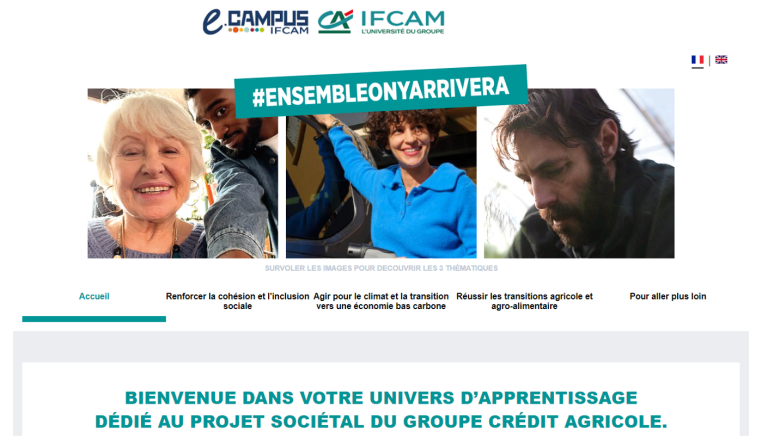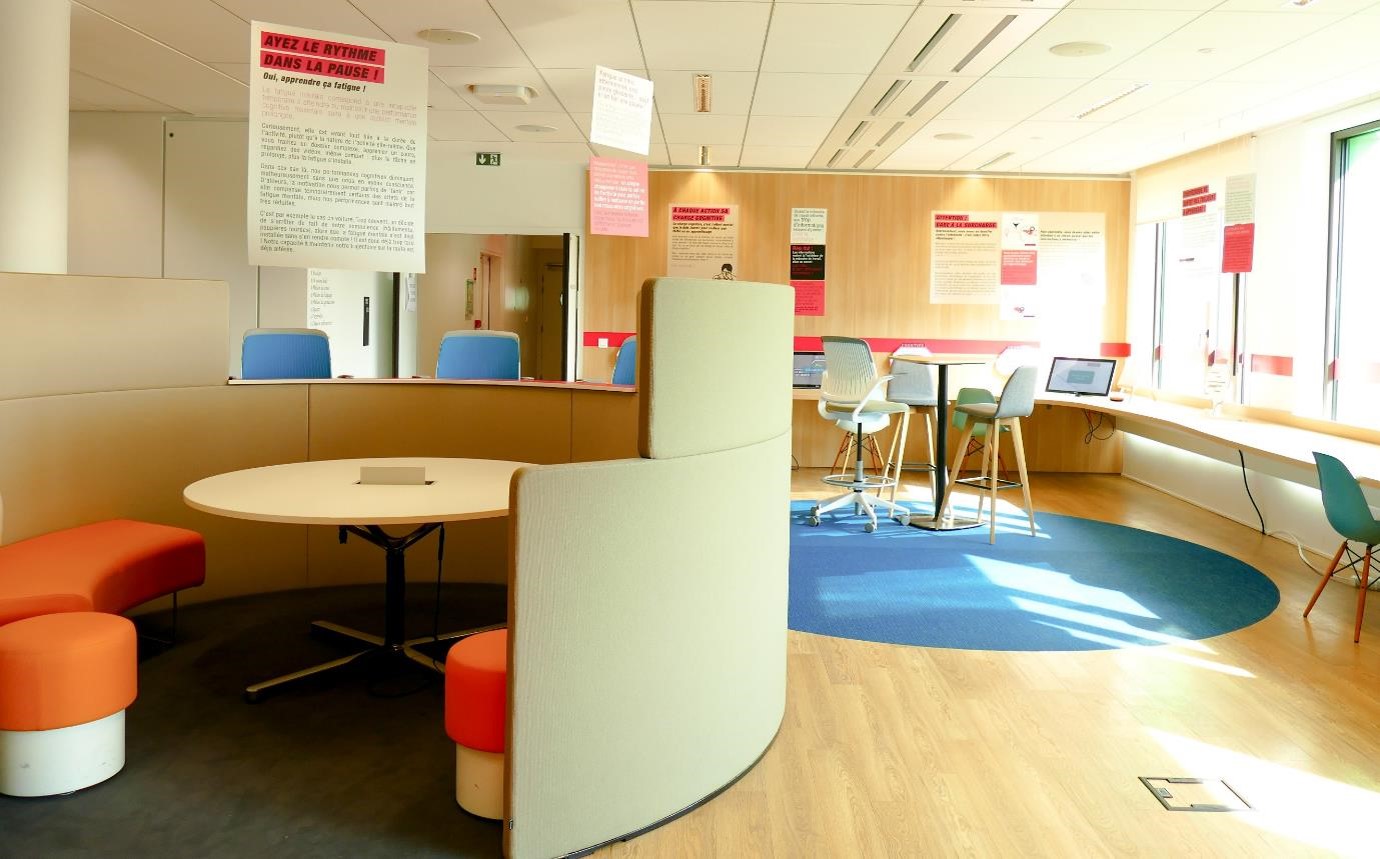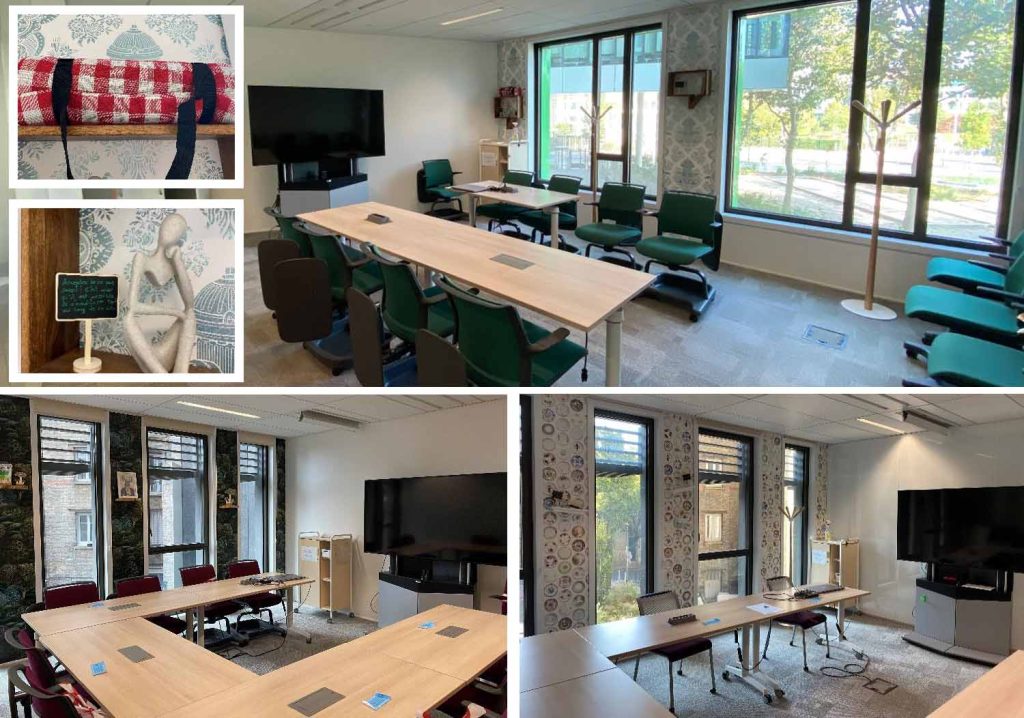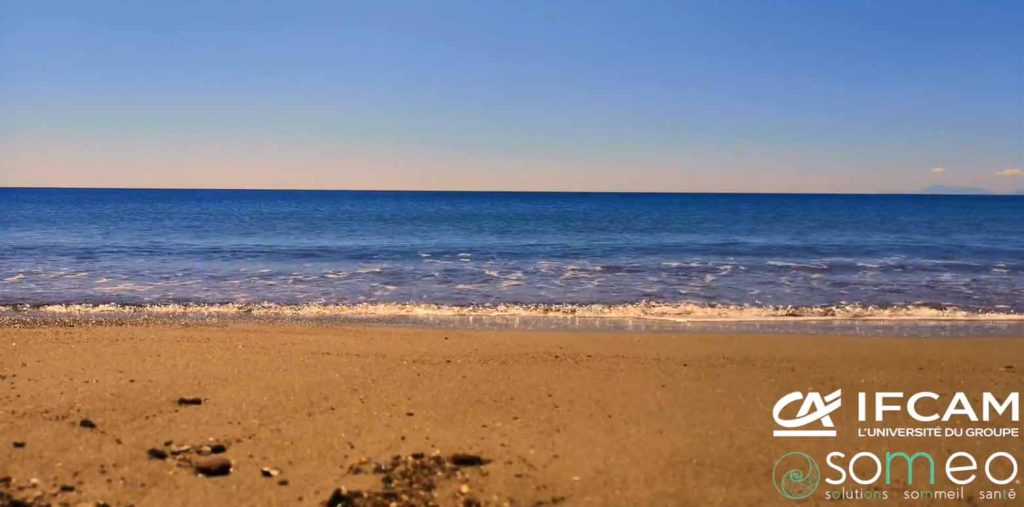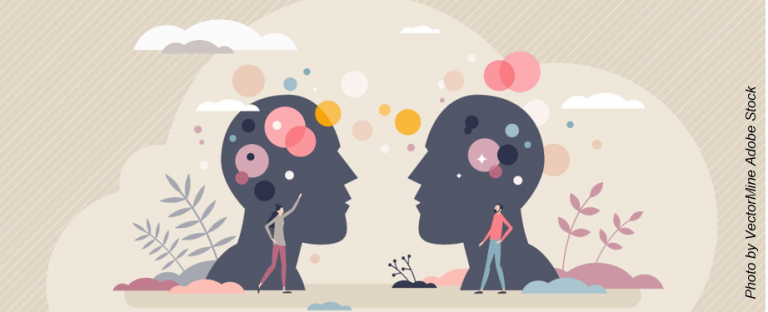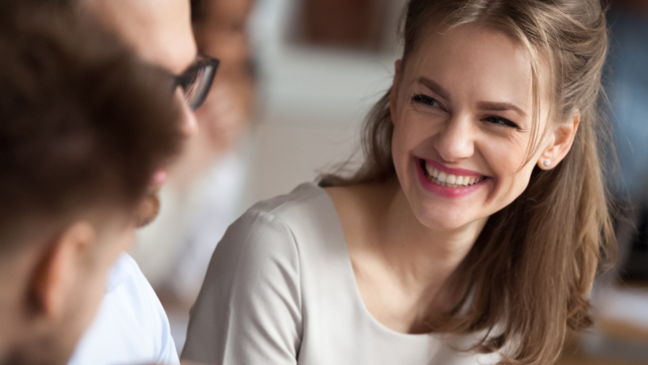What if we went outside of the training room to learn?
The theme of the 2022 Learning Festival is “thinking outside of the box for the pleasure of learning”. This is a subject that particularly inspires us at IFCAM and one that we have chosen to address through the places where we learn. Is the training room the only place to learn? Does getting out of the training room necessarily mean “going outside”, into nature? Can we bring nature into the training room?
Julie Mary, Project Manager, and Dorothée Cavignaux-Bros, Training Engineer, share with us IFCAM’s thoughts and achievements on this subject.
Dorothée, why is this subject so topical?
DCB: The health crisis has slightly accelerated the hybridization of training, and the development of digital spaces for training. At the same time, we feel the need for more nature, to rediscover places to recharge our batteries, to educate ourselves, to step outside of our daily lives. This observation led us to re-examine the place and role of places of learning. We had already addressed these questions when we moved to the Montrouge campus in 2017, with regards to the layout of training and work spaces.
Spaces, places, environment and training are all notions that deserve clarification, both in terms of what they cover and their potential for our learners. Therefore, we invited Denis Cristol to give a talk entitled : “Learning the power of places, nature as a source of inspiration”.
And what did you learn from this conference ?
DCB: I have learned that places have energies that can influence those who visit them:
- The natural energy of forests, rivers, …
- The civilising energy of museums, gardens, villages, …
- Functional energy in training rooms, production areas such as workshops, fablabs, etc.
- The emancipatory energy of places of memory,
- And finally, the creative energy of other places, wastelands, …
Denis Cristol also gives us some ideas on how to bring nature into training areas.
Interesting! Is a replay of this conference available?
DCB: Yes, you can find the whole conference on the IFCAM Youtube channel.
Dorothée was telling us that you had thought about learning places as soon as IFCAM arrived on the SILVAE site in Montrouge at the end of 2017. Julie, I believe you have been addressing these questions. Can you tell us about it?
JMP: With pleasure! For us, the university employees, the move was a way of getting even closer to our colleagues at Crédit Agricole, since the Evergreen Campus has several thousand people. A Campus open to meetings and exchanges! We wanted to offer the same openness found within the Group to our learners. Our site has therefore been fitted out with spaces dedicated to informal exchanges and sub-group work, outside the traditional training room. For example, we have the “foyer” area where learners can meet Group employees; the “great hall” equipped with “togunas” allowing small groups to work away from prying eyes and possible noise pollution; and lastly, our superb terrace on 6th floor, which allows for pleasant moments of rest or icebreakers. We have given a preview of these places to the trainers who come to teach on the site and who have a private room at their disposal. This room aims at encouraging exchanges between peers and allows to discover parts of our learning exhibitions.
Indeed, IFCAM encourages to be open-minded as soon as people arrive on site or during breaks through its “learning exhibitions” on themes related to learning: virtual reality, robots, the brain, training trends, the history of educational innovation at IFCAM and the latest: nature. Exhibitions that nourish the mind and gives one more good reason for leaving the training room!
The Togunas & part of the exhibition “Learning, the brain reveals its secrets” in the Great Hall
Lots of places that encourage you to leave the room then!
JMP: Indeed! But the training room remains a key factor in the success of a training course and should not be neglected – quite to the contrary! We wanted to take our learners on a journey, in our own way, by choosing to highlight the cultural heritage of our regions through the names of the rooms.Thus, the learner is invited in a welcoming place, with a named after project carried out by the Crédit Agricole Pays de France Foundation, such as Maison du pain, Alpage, Cabane des vignes, Moulin à eau, etc. In order to make each area more personalized, each room has been decorated with wallpaper, shelves and small decorative objects, linked to the name of the room. On each of our sites, we wanted to give nature a place of honour: each floor is named after an element such as water, earth and air, and at the Paris site we chose to use names of plants for our rooms.
Finally, all the furniture and resources installed in the rooms have been designed to make all the teaching scenarios possible. We therefore have modular rooms that can be opened up; furniture on wheels which can also be folded; interactive screens, mobile screens,…
How did you support the trainers in these new environments?
JMP: When you talk about new spaces that lead to new uses and teaching methods, you have to train our trainers! Indeed, change is not natural and must be accompanied by a period of acclimatisation, which is why the Camp’use programme was launched in 2018! Initially, it was a question of acclimatising to these new places and exploring new educational uses. Faced with the health crisis that affected us in 2020 and which forced us to temporarily stop all visits to our site, we have developed a system to improve the skills of all our trainers through remote-learning techniques.
And how is it going for the courses that are not held on your campus?
JMP: Since the implementation of the Learning Experience team in 2018, we have continued our experiments beyond our campus, for all of our training courses, even those that take place elsewhere or remotely. We have introduced resources that take nature into account, such as a guided micro-nap with Soméo based on sounds like the sound of waves, rivers, and associated visuals, the famous blue spaces mentioned by Denis Cristol in his lecture.
Thank you Julie, Dorothée, a final word?
DCB: We feel that the subject is becoming increasingly important, as is the consideration of the body in training, the need to manage one’s cognitive load and to diversify the sources and spaces of learning. At IFCAM we are passionate about all of these subjects and we are delighted to share our thoughts and experiences as part of the Learning Festival 2022.
